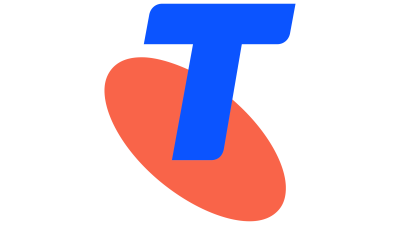Day Two
10:00 am - 10:30 am
SGT
Case Study: Optimizing Process Efficiency and Risk Management Through Intelligence
Aaron Leung -
Head of Process Improvement and Enablement CoE,
Telstra
In 2025, Telstra has committed to investing $100 million annually for seven years, to roll out AI solutions across its operations and customer services. This marks one of the most significant AI technology rollouts ever undertaken by a major Australian company. The aim is to shift towards smarter networks, seamless operations and potentially a new era of customer interactions too. In this fireside chat, discover how Telstra is setting itself up for AI success and bringing process intelligence into the hands of operational leaders within the business too.
Key takeaways:
- Find out how Telstra is working with the complexity of legacy environments and navigating those patchworks of data to best effect
- Learn about Telstra's 'big bet' on digitization and cleaner data and the implications for the business
- Find out how Telstra is aiming to use AI to streamline processes and anticipate and fix outages before they happen
- Discover how best to roll out AI across the business and what to prioritise amid changing market conditions
10:30 am - 11:00 am
SGT
From Process Mining to Hyperautomation – Creating a Unified Intelligence Layer
To fully capitalize on automation, organizations must understand which processes are fit for it and how to prioritize them. This session explores how process intelligence informs and accelerates hyperautomation strategies by highlighting inefficiencies, manual dependencies, and fragmentation. Attendees will learn how to align process insights with RPA, intelligent document processing, and orchestration platforms to scale automation more effectively. We will also touch on key integration considerations and success metrics.
Key takeaways:
- Understand how to evaluate and prioritize automation opportunities with PI
- Learn to unify PI with AI, RPA, and workflow orchestration tools
- Discover the benefits of creating a feedback loop between automation and insight
- Gain clarity on measuring ROI in hyperautomation initiatives
11:00 am - 11:30 am
SGT
Task Mining and the Human Element – Bridging System Gaps for End-to-End Insight
While system logs offer valuable insight into structured processes, many critical actions still occur at the desktop level. Task mining tools provide visibility into how users interact with applications, revealing hidden inefficiencies, workarounds, and training needs. This session will highlight how task mining complements process intelligence to provide a fuller operational picture, particularly in hybrid or human-in-the-loop environments. Guidance on balancing transparency with employee trust and privacy will also be shared.
Key takeaways:
- Discover how task mining fills the gap between user behavior and system logs
- Learn to identify high-friction or low-value tasks ripe for automation
- Understand the ethical and organizational implications of desktop data collection
- Explore best practices for rolling out task mining initiatives
11:30 am - 12:00 pm
SGT
Unlocking Productivity Gains Through Scalable Process Intelligence
When process intelligence is deployed at scale, the productivity and efficiency gains can be transformational. This case study explores how end-to-end visibility has enabled significant cost savings, faster turnaround times, and better alignment between operational units. Attendees will hear how combining historical data, predictive analytics, and continuous monitoring has created a cycle of sustained improvement. We will also examine the infrastructure, skills, and governance required to maintain success long term.
Key takeaways:
- Learn to measure and sustain productivity improvements through PI
- Understand the infrastructure and capabilities needed for enterprise-scale rollout
- Discover the benefits of aligning operational KPIs with PI insights
- Explore how to use PI to support business-wide transformation





